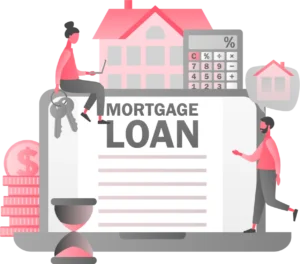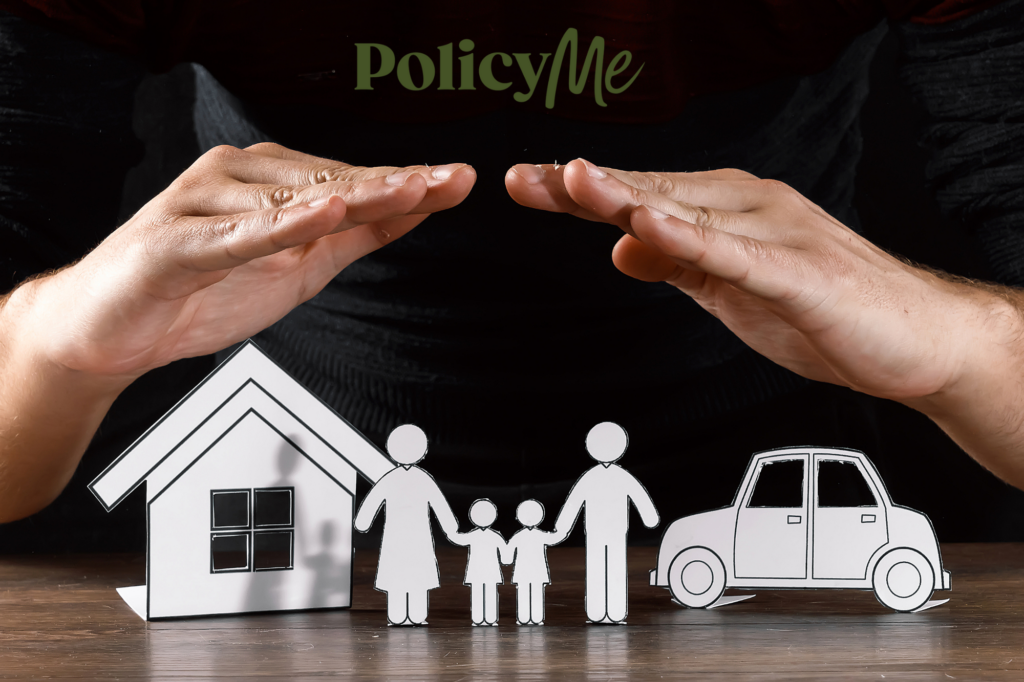Welcome to your one-stop shop for becoming a first-time homeowner in Canada. Or, maybe you are looking for a new place and want to refresh on financing and purchasing a home. In either case, it is important to understand what you are getting into when buying a new home in Canada.
Factors such as inflation and the ever-changing prime rate have impacted overall affordability of housing in Canada. But, there are still many opportunities for prospective buyers to enter the real estate market as a first time home buyer, as nearly two-thirds of Canadians own their home–though the exact number has declined in recent years.
Advertisements
Renting versus buying the current market

In many cases, our current economy and high interest rates has caused many people to resort to renting until the housing market improves and home ownership becomes more affordable. However, that doesn’t mean first-time buyers shouldn’t buy a home. If you decide to buy a home in the current real estate market, it is vital to know what homeownership looks like as a first-time homeowner in Canada.
The following table provides general statistics of homeowners versus non-homeowners in British Columbia and Ontario.
| Location/Age | 18-34 | 35-54 | 55+ | Total |
| British Columbia | Own: 97K Do not own: 833K | Own: 434K Do not own: 723K | Own: 826K Do not own: 757K | Own: 1.36M Do not own: 2.31M |
| Ontario | Own: 319K Do not own: 2.48M | Own: 1.38M Do not own: 2.0M | Own: 2.05M Do not own: 2.23M | Own: 3.75M Do not own: 6.71M |
So, you want to buy a home?
A home is one of the most significant investments you can make. Whether you are looking for a skyline condo in the heart of a big city or a quaint cottage on a bit of land, there’s nothing like owning your own home. It’s more than just an investment, it’s a sense of security and stability for many Canadians. The key is the process, understanding it, and confidently closing on your first home.
How much can you afford to pay?
Owning a home is not a cheap endeavour, but it is rewarding.
Creditpicks
Tweet
According to Canada Mortgage and Housing Corporation (CMHC), your monthly mortgage payments shouldn’t be more than 39% of your gross monthly qualifying income. That means if you’re making $5,000 every month, it is recommended that you stay under $1,950 for your monthly housing expenses. When you pay more than 39%, you can be susceptible to a high debt ratio, and you may find that paying your mortgage each month is difficult.
Additionally, your entire monthly debts should not exceed 44% of your gross monthly qualifying income. This includes all your other debts such as loans, credit card payments, and any other debts you may have. Using a mortgage affordability tool may help you get a good estimate of the property value you can afford.
Owning a home is not a cheap endeavour, but it is rewarding. For example, if you keep your house for a few years and decide to sell it, you build equity in your home and can end up making money back. Whereas, if you were renting the same home and decided to move, you would never make back the money you paid in rent.
Advertisements
What is a mortgage?
Most first-time homeowners in Canada need to borrow money for their homes, so they take out a mortgage. A mortgage is a loan you get to buy a home. Depending on your credit history and current financial standing, lenders offer mortgages of various terms and conditions based on how much of a default risk you hold as a borrower.
Though some people only work with one lender, it is important to “shop” for the best rates and conditions for your specific mortgage needs. Since mortgages consist of both the principal amount (the price you are borrowing) and interest (the fee your lender charges you to borrow money), not all lenders offer the same rates.
Mortgage pre-approvals benefit buyers and sellers
Once you decide on a lender, you can get a mortgage pre-approval. A pre-approval defines how much the lender will lend you for your mortgage and at what interest rate. Many sellers consider pre-approved buyers less risky when selling their homes. It is also a great way to show sellers and lenders that you mean business.
See mortgage terms and amortization from the Financial Consumer Agency of Canada for more information on mortgages.
What is a fixed interest rate?
A fixed interest rate is a rate that does not change for the entirety of the loan. For example, if you have a fixed interest rate on your mortgage of 5%, your interest rate will be 5% at the beginning, middle, and end of your loan. Fixed interest rates are beneficial when low-interest rates are available and your budget requires predictability.
What is a variable interest rate?
A variable interest rate is an interest rate that varies over time based on market interest rates. This is set by the lender and based on various factors such as market conditions, lender’s cost of funds, the overnight rate, and the lender’s profit margin.
The Bank of Canada’s overnight rate will have a significant influence on the variable mortgage rate determined by your lender. This can be a good option for first-time homeowners in Canada who plan to pay back their mortgage quickly and are financially stable enough to take the risk of increased interest rates. Be sure to talk to a lender and a professional financial advisor to determine which interest rate is best for you.
Advertisements
What is a down payment?
Depending on your lender’s terms, you can expect to be paying between 5% to 20% of the price of your home upfront. This is the down payment. The more you pay upfront in your down payment, the less you will owe on your mortgage. You may also get a better interest rate.
If you pay greater than 20% of the home price in your down payment, you will likely be exempt from paying for mortgage default insurance. The more you pay upfront, the less risk you look to lenders (and the less they must lend). As a result, you will get a better overall deal on your mortgage.
What is mortgage insurance?
CMHC provides mortgage insurance to protect lenders from first-time homeowners in Canada who default on a payment or multiple payments. This price is charged to lenders directly, but the cost gets passed onto the homebuyer in many scenarios. For example, if you pay a greater down payment, you may be exempt from paying the mortgage insurance cost.
For example, you decide to purchase a $300,000 home. However, if you have only saved up 5% of the purchase price, you will have a down payment of $15,000 and will most likely have to pay for mortgage default insurance. Therefore, your mortgage rate and conditions will not be as enticing as if you had paid a larger down payment amount.
Consider if you saved up 20% of the purchase price on the same home. In this case, your down payment would be $60,000, and your rate and terms would be much better. Not to mention you likely would not have to pay for mortgage default insurance.
What is the best way to save for your first home?
Consider opening a TFSA where you can save and invest money tax-free. Alternatively, you can withdraw up to $35,000 from your RRSP without paying taxes. Finally, the new FHSA is specifically for first-time homeowners in Canada. Use it if you’re eligible to do so.
Creditpicks
Tweet
You want to leverage first-time home buyer programs wherever possible. Consider opening a TFSA where you can save and invest money tax-free. Alternatively, you can withdraw up to $35,000 from your RRSP without paying taxes.
First and foremost, as a first-time homeowner in Canada, you must have a good idea of your current finances. Start by checking your credit score, assessing your liquid savings, and considering any big purchases you will have to make aside from home in the next 12 months. Borrowell helps Canadians make great decisions about credit with its free credit score check within minutes. Simply click the banner below to get your instant credit check.
Advertisements
Lose the taxes and kickstart your savings

Even though a mortgage will help you pay for most of your home, you will need to pay for upfront costs and down payment. You may also need to pay for closing costs if the seller does not pay for that in the contract of your home. Check out the Government of Canada’s Financial Goal Calculator to help determine how much money you will need to save for your home.
To help kickstart your savings, here are some tips.
- If you are a first-time home buyer in Canada, open a First Home Savings Account (FHSA). With annual contribution limits of $8,000 per year and $40,000 total, this is a great way to start saving for your down payment without impacting your annual TFSA limit.
- Consider opening a Tax-Free Savings Account (TFSA) where you can save and invest money tax-free.
- You can also save for your home through a Registered Retirement Savings Plan (RRSP) and withdraw up to $35,000 from your RRSP without paying taxes under the Home Buyers’ Plan. The withdrawal is tax free as long as it’s paid within 15 years.
Strategic planning of these three investment vehicles will be helpful in saving for your first home. Consult your financial advisor about the best ways to invest and save money as a first-time homeowner in Canada.
Are tax credits or first-time home buyer incentives available to Canadians?
There are two different types of tax credits for first-time homeowners in Canada. You may also be eligible for tax credits within your province or territory.GST/HST housing rebates
When you buy a new home, you may be eligible for a rebate on some of the tax you paid to purchase the home.
The Home Buyer’s Amount
The home buyer’s amount allows homebuyers to offset some of the upfront cost (up to $750) when they buy a home and submit their tax return. You can find out more about this tax incentive on the Government of Canada’s website.Should I use a real estate agent?
Working with a real estate agent is not mandatory. This is true when buying your first home or any home. However, having an expert on your side can be highly beneficial and save you thousands of dollars through negotiations. In addition, they professionally handle every step of the home-buying process so that you don’t have to stress about what happens next.
The commissions may be worth it
Remember, buying a home is more complex than getting pre-approved for a mortgage and submitting offers. Once a seller accepts your offer, you will need to be in direct contact with insurance agents, closing attorneys, inspectors, pest control, and other professionals along the way. When you hire a real estate agent, they handle these communications. They will also know which professionals are the best and most cost-effective.
The number one reason first-time homeowners in Canada choose not to use a real estate agent is commission fees. Real estate agents make money by charging commission fees based on the home you buy. Your realtor is paid from the property’s final sale. In Canada, real estate agents typically have commissions from 3% to 7% of the purchase price.
Even though the commission fee is built into the transaction, you still pay this from your pocket in the long run. So be sure to consider how the cost of a real estate agent would affect your finances long term. For more information on how realtors are involved in the home-buying process, check out Canadian Real Estate Association’s (CREA) website.
Advertisements
When should I start looking at homes?
Once you establish your budget, save for your down payment and associated costs, and get pre-approved for a mortgage, you are ready to start looking. If you are currently leasing your home, you should consider starting the process of finding a mortgage and establishing your budget about six months before the end of your lease.
How do I make an offer on a home in Canada?
As a first-time homeowner in Canada, you may want to work with a real estate professional. An agent will handle most of the offer-making for you. They will draft an offer, have you sign to confirm the details, and send it to the seller or their agent.
If you do not have a real estate agent, it is essential to know what your offer needs to include. According to CMHC-SCHL, your submission must include the following:
- Your legal name and the seller’s legal name
- The property address, the type of property, the home's value, and the price you are willing to purchase the property for
- The amount of money you will pay as the deposit
- The closing date
- Any requests for land surveys, inspections, etc.
- Items you want to include or have left in the home
- Any other conditions that must be met before closing
- The date your offer expires
Even though you set your offer terms, prepare for the seller to negotiate.
Should I rent a home or buy a home in Canada?
You should now have a good idea about becoming a first-time homeowner in Canada. Depending on your current finances, you should be able to determine if you can afford to buy your own home. You now have an idea of what the Canadian government offers in terms of first-time homebuyer incentive, eligibility issues, determining home prices, and the importance of working with a mortgage professional. You can probably also discuss the current value of the property, your intended home purchase price, and the reasons for higher rates with your financial institution. Remember, you can also find more information regarding mortgages on our site.
If you found this article helpful, we can guarantee you’ll enjoy the rest of our Canadian personal finance content! So if you’re looking to kickstart your personal finance and grow wealth, you’ve come to the right place. Subscribe to our newsletter today for monthly financial guidance and inspiration delivered straight to your inbox!
Advertisements




